Partners


BEWH is the Belgium branch of the Italian company Tinexta Innovation Hub, a privately held consultancy services company that provides full-spectrum consulting in business finance. BEWH has extensive experience in project management, communication, dissemination, and exploitation of project results, as well as environmental, economic, and social impact assessment. BEWH offers a methodological and strategic approach for the successful implementation of EU-funded research and innovation projects.
Role in HYDRA:
BEWH is the coordinator of the project. Additionally, BEWH coordinates the activities of WP6 dealing with dissemination, communication, and exploitation of project results.
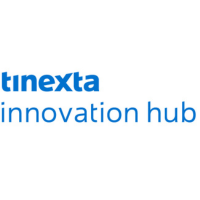
Tinexta Innovation Hub has been active since 1995, growing over the years to become a leader in its sector today. Tinexta Innovation Hub gives their clients the best support tools for the success of their business initiatives and to assist them in the preparation and management of strategic projects: business projects, research projects, training and technology transfer activities, under National and International support frameworks. The European Funding Development (EFD) team provides consultancy, training, and support on EU-funding opportunities, and in the preparation, negotiation and management of European proposals, particularly on H2020/Horizon Europe calls.
Role in HYDRA:
Tinexta Innovation Hub is the WP1 Leader involving its qualified and specialized staff in the activities foreseen in the Tasks. These activities refer to the overall administrative and financial management and reporting of the project.

CARTIF is a horizontal, private and non-profit Research Institution, whose main mission is providing innovative solutions to the industry to enhance their processes, systems and products, improving their competitiveness and creating new business opportunities. CARTIF has a long experience in EU collaborative research projects and large expertise in energy, ICT, and climate and energy policies.
Role in HYDRA:
CARTIF brings his expertise in Integrated Assessment Modelling (IAM), in particular WILIAM IAM, and climate and energy policy to build energy, socio-economic, and emission scenarios in hydrogen economy, and analyse benefits and risks and possible mitigation strategies.

AUTOMA was founded in 1987 by the entrepreneurial spirit and creative skills of Giorgio Giorgetti, the current CEO. The history of the company runs parallel to the development of electronic technologies, developing over the years a great deal of technological expertise in the field of electronics and innovation, which places it in a leading position in the national and international market. The continuous investment in technological innovation and the constant introduction of improvements, resulting from the sharing of best practices and operational experience gained, have made AUTOMA a benchmark for solutions for remote monitoring of cathodic protection and operational parameters of oil, water and gas distribution and transportation networks.
Role in HYDRA:
AUTOMA will develop advanced sensors for the detection of H2 leakages and implement a remote- control system embedding the developed sensors, in order to intensify the monitoring of the H2 value chain, increasing safety and preventing emissions to the atmosphere.
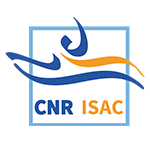
The Italian National Research Council (CNR) is the largest public research institution in Italy. The CNR research unit involved in HYDRA is the Institute of Atmospheric Sciences and Climate (ISAC). ISAC pursues the characterization of Earth’s climate and of its past, present and future variability through reconstructions and scenarios, the estimate of environmental risks induced by climate change and the analysis of the fundamental processes of climate dynamics. As part of the EC-Earth Consortium, ISAC collaborates on the development of the EC-Earth climate model.
Role in HYDRA:
CNR will perform ensembles of future climate projections driven by a set of GHG forcing scenarios associated with a hydrogen-based economy, using the EC-Earth3 state-of-the-art climate model. The global climate response to the new scenarios will be assessed and framed in the wider context of previously released scenario simulations (WP5).
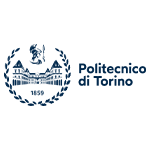
Founded in 1859, Politecnico di Torino (POLITO) is a leading university in Italy and in Europe in the field of technical-scientific research (www.polito.it), with a yearly budget of about €300 million and over 33,000 students enrolled. POLITO was co-founder in 2008 of the Fuel Cell and Hydrogen Joint Undertaking (now Clean Hydrogen) and has developed around 30 FP7 + H2020 projects in the domain of FCH, with around 10 in coordination. POLITO manages several laboratories in the domain of FCH, from basic research at low TRL to applied research at TRL6, with around 150+ researchers involved in this research domain.
Role in HYDRA:
POLITO will lead WP2 activities. Then, POLITO will give a significant contribution to the validation of WP3 hydrogen leakage sensors, with the specific use of the hydrogen tunnel for the validation and optimization of the sensors in emblematic leak conditions. Finally, a wide activity on communication through scientific papers and presentation to international conferences is envisioned.
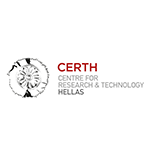
CERTH has long experience in H2 projects in both development, design, execution of demonstration projects such as REMOTE, 24/7 ZEN, and hydrogen valleys CRAVE H2
Role in HYDRA:
CERTH will contribute to WP2and supervise”. the WP3 activities, especially focusing on the validation of sensors application in the hydrogen installation within its premises. CERTH will also work on updating LCA methodologies concerning H2 usage based on project finding. Finally, a wide activity on communication through scientific papers and presentation to international conferences is envisioned.
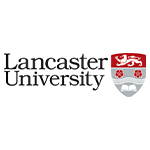
Lancaster University is a UK top-15 university and hosts one of the largest groups of environmental researchers in the UK. It has more than 50 years’ experience working in the atmospheric sciences covering laboratory, field measurement and model studies. Key areas of expertise include atmospheric composition, atmosphere-biosphere interactions, numerical modelling and climate change. Lancaster has an international reputation for its success in translating scientific results into broader benefits for policy, industry, and society.
Role in HYDRA:
Lancaster has world-leading expertise in the development and application of models of atmospheric chemistry and transport. These are needed to assess the impact of hydrogen production and use on atmospheric composition, the ozone layer, and regional air quality. The UK University of Lancaster will improve the overall expertise of the Consortium through offering strategic methodologies.
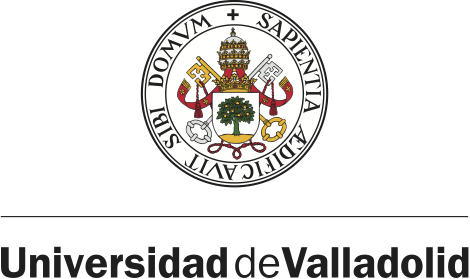
Universidad de Valladolid (Uva) has long experience in Horizon projects. UVa coordinated the LOCOMOTION project and was appointed as the official maintainer of the WILIAM model. In particular: The Energy, Economy, and Systems Dynamics Group (GEEDS) will lead the participation in HYDRA with prior expertise in environmental issues and personal involvement in ecology and development cooperation. Its aim is to bridge the global citizenship concerns with academic research at the University. Its research focuses on energy and economics as pivotal aspects of technology and life, and on systems dynamics as the most suitable tool for analysing the intricate relationships among variables influencing sustainability and development, with a systemic perspective.
Role in HYDRA:
UVa will collaborate with CARTIF on introducing the hydrogen sector in the WILIAM model across all of its modules (economy, energy, land-use, water, etc.) which will allow simulating hydrogen-based scenarios over time according to specific hydrogen technologies (Task 4.1) and evaluating different policy scenarios, by means of benefits, risks, and potential mitigation strategies (Task 5.2). UVa will also participate in the evaluation of the policies in WP2 and in the development of policy recommendations in WP5. Last but not least, UVa will support CARTIF on addressing the integration of HYDRA project results into WILIAM model.


